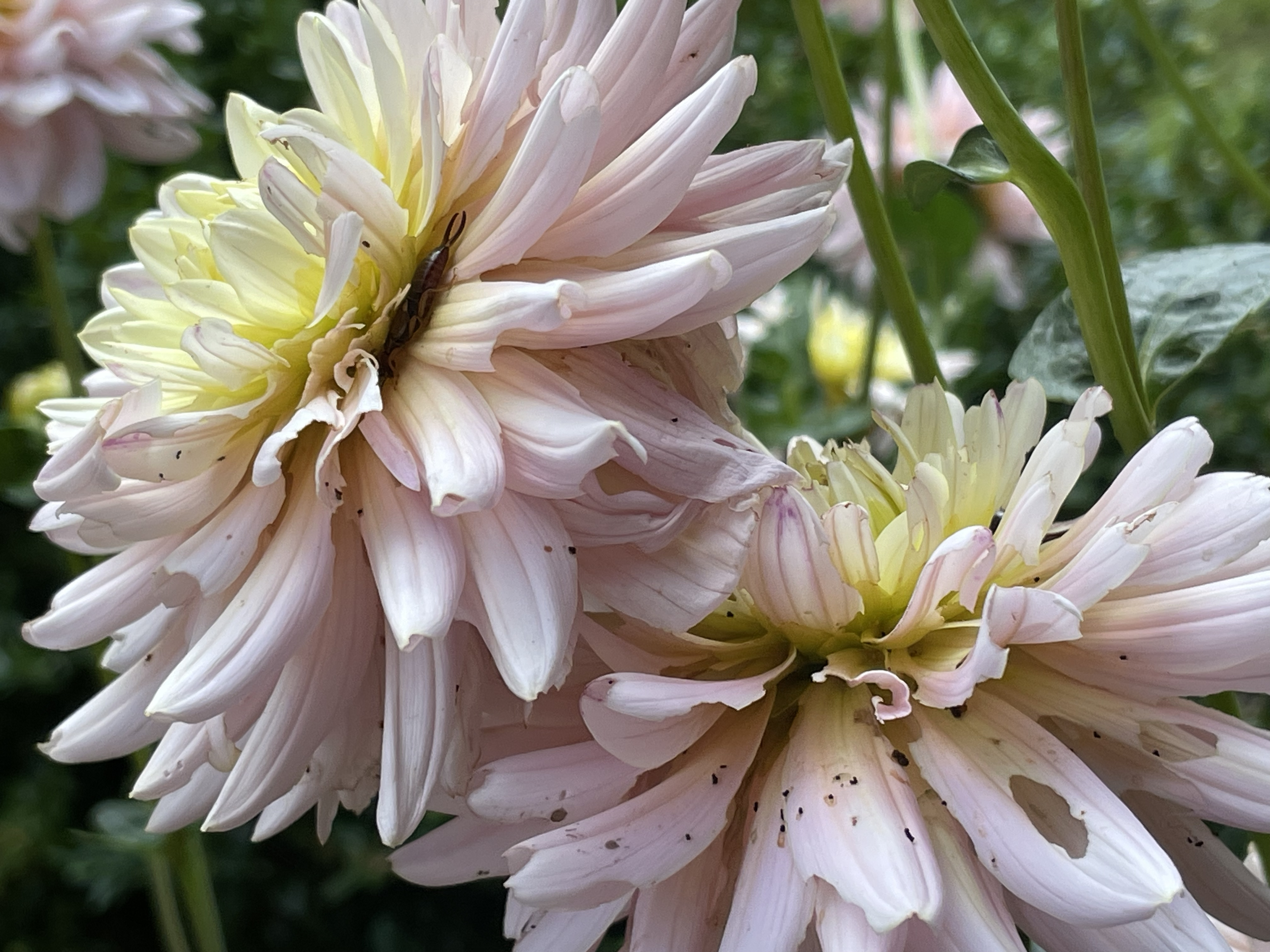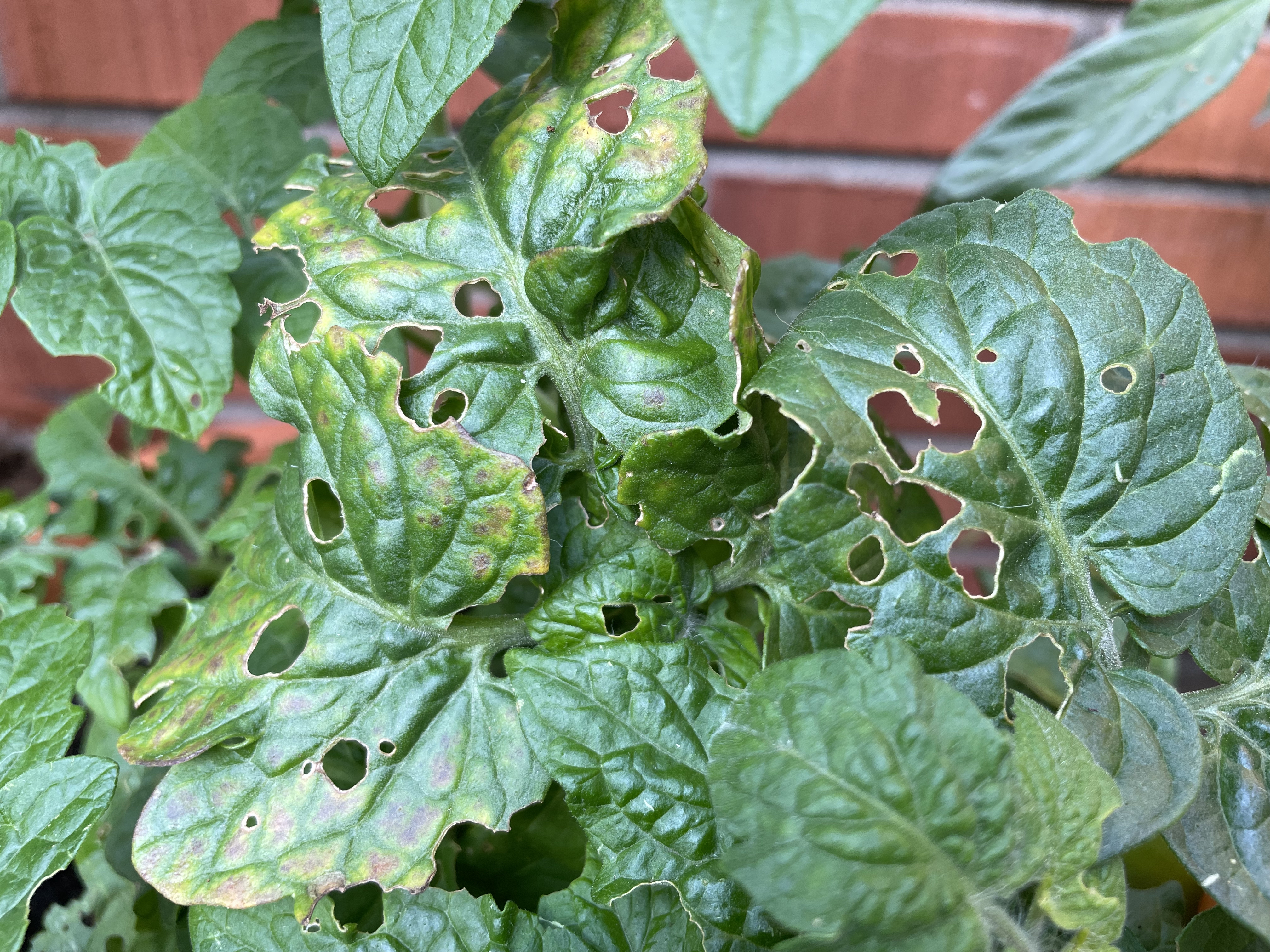What are earwigs?
Earwigs, easily identified by their distinctive rear pincers, can be a concern for both gardens and homes. Gardeners are especially troubled by their strong appetite for plants, causing noticeable damage. They can be found in crevices on your plant, but also in the soil or under the pot.
Symptoms
Irregular holes on leaves, flowers, buds, and even fruits of your plants
Trail of feces
Capable of causing notable harm when they increase in numbers

What to do now
Remove the earwigs by hand
Reduce moisture since they are attracted to damp and humid environments
Remove hiding spots by clearing debris, mulch, and other hiding spots near plants
Barriers with diatomaceous earth can deter earwigs from reaching your plants
Traps like rolled-up newspaper, cardboard and small containers filled with mixtures of vegetable oil, soy sauce or a mixture of water and dish soap
Attract beneficial predators such as birds, toads, and ground beetles, by creating habitats that attract these creatures to your garden
Use insecticides if infestations are severe, consider using natural or chemical insecticides labeled for earwig control.
Nighttime removal since earwigs are most active at night, you can handpick them using a flashlight

Common questions about earwigs
Are my plants at risk?
Keeping your plants indoors year-round minimizes the risk of earwig issues. However, if you have outdoor plants, there's a chance of earwigs settling on them or hitching a ride on the pot. Given their non-selective feeding habits, it's advisable to regularly inspect all outdoor plants for potential damage.
How long do they live?
Earwigs usually live up to a year. Males tend to die during winter.
What do they eat?
Earwigs are omnivorous insects that feed on plants, insects, and decaying matter. They are opportunistic predators and scavengers, benefiting by controlling some pests. While they eat various plants, their preference varies based on moisture and other factors. They are a very common problem for gardeners who keeps Dahlias, Roses and vegetable plants.
Can I prevent this in the future?
While it's nearly impossible to completely eliminate all earwigs from your garden, you can take steps to reduce their populations and minimize their impact on your plants. Earwigs are common garden pests that can feed on both living and decaying plant material.